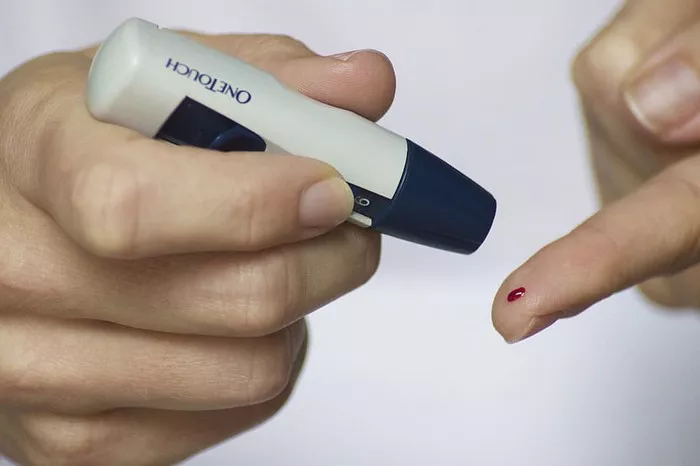Type 1 diabetes (T1D), often referred to as juvenile diabetes or insulin-dependent diabetes, is a chronic autoimmune disorder characterized by the destruction of insulin-producing beta cells in the pancreas. While the term “type 1 diabetes” is widely used to describe this condition, it is important to understand the various names and labels associated with T1D, along with their historical context, clinical significance, and implications for individuals affected by the disease. In this comprehensive article, we delve into the nomenclature of type 1 diabetes, exploring its origins, evolution, and relevance in contemporary healthcare.
Historical Perspectives on Type 1 Diabetes Nomenclature
The terminology used to describe type 1 diabetes has evolved over time, reflecting advances in medical knowledge, diagnostic criteria, and treatment modalities. The origins of the term “diabetes” can be traced back to ancient civilizations, where it was first recognized as a condition characterized by excessive urination and sweet-tasting urine. The word “diabetes” is derived from the Greek word “diabainein,” meaning “to pass through,” reflecting the polyuric nature of the disease.
In the early 20th century, researchers began to differentiate between different types of diabetes based on clinical features and pathophysiology. Dr. Elliot Joslin, a pioneer in the field of diabetes care, coined the term “insulin-dependent diabetes” to describe a subtype of diabetes characterized by absolute insulin deficiency and dependence on exogenous insulin for survival. This distinction laid the groundwork for later classifications of diabetes into type 1 and type 2 categories.
The term “juvenile diabetes” emerged as another descriptor for type 1 diabetes, reflecting its predilection for onset in childhood or adolescence. This terminology highlighted the age of onset as a distinguishing feature of T1D, contrasting with type 2 diabetes, which was traditionally associated with adult-onset and insulin resistance.
Defining Type 1 Diabetes: Clinical Features and Diagnostic Criteria
Type 1 diabetes is characterized by the destruction of pancreatic beta cells by the immune system, leading to an absolute deficiency of insulin production. While the exact cause of beta cell destruction remains unclear, it is believed to result from a combination of genetic predisposition and environmental triggers, such as viral infections or dietary factors, that provoke an autoimmune response against beta cells.
The clinical presentation of type 1 diabetes typically includes symptoms such as polyuria (excessive urination), polydipsia (excessive thirst), weight loss, fatigue, and blurred vision. In some cases, T1D may present acutely with diabetic ketoacidosis (DKA), a life-threatening condition characterized by hyperglycemia, ketosis, metabolic acidosis, and dehydration.
Diagnosis of type 1 diabetes is based on clinical criteria, including symptoms of hyperglycemia, fasting blood glucose levels, and the presence of autoantibodies against pancreatic islet cells, such as antibodies against insulin, glutamic acid decarboxylase (GAD), and insulinoma-associated antigen-2 (IA-2). These autoantibodies serve as biomarkers for autoimmune destruction of beta cells and are used in the diagnosis and prediction of T1D.
The Evolution of Type 1 Diabetes Nomenclature: Insights from Research and Clinical Practice
Over the years, the terminology used to describe type 1 diabetes has evolved to reflect advances in our understanding of the disease and its management. While the terms “juvenile diabetes” and “insulin-dependent diabetes” were once commonly used to describe T1D, they are now considered outdated and potentially misleading, as type 1 diabetes can occur at any age and not all individuals with T1D require insulin therapy.
In contemporary healthcare, the term “type 1 diabetes” has become the preferred nomenclature for describing the autoimmune form of diabetes characterized by beta cell destruction and absolute insulin deficiency. This terminology emphasizes the underlying pathophysiology of the disease, distinguishing it from type 2 diabetes, which is primarily driven by insulin resistance and relative insulin deficiency.
Clinical Implications of Type 1 Diabetes Nomenclature
The use of accurate and consistent terminology is essential for effective communication among healthcare providers, researchers, policymakers, and individuals affected by diabetes. Clear and precise language helps to facilitate diagnosis, treatment decisions, patient education, and public health initiatives aimed at preventing and managing diabetes.
For individuals living with type 1 diabetes, the terminology used to describe their condition can have significant implications for self-identity, stigma, and access to care. Labels such as “juvenile diabetes” or “insulin-dependent diabetes” may reinforce stereotypes or misconceptions about the disease, potentially contributing to feelings of shame, isolation, or discrimination.
By using inclusive and person-centered language, healthcare providers can empower individuals with type 1 diabetes to take an active role in their care, advocate for their needs, and engage in shared decision-making. This approach fosters a collaborative and supportive healthcare environment that respects the dignity, autonomy, and diversity of individuals living with diabetes.
Looking Ahead: Embracing Diversity and Inclusion in Diabetes Care
As our understanding of type 1 diabetes continues to evolve, so too must our language and terminology. By using inclusive and person-centered language that reflects the complexities of diabetes and honors the experiences of individuals affected by the disease, we can create a more supportive and inclusive healthcare ecosystem that empowers everyone to thrive.
Conclusion
Type 1 diabetes is a chronic autoimmune disorder characterized by the destruction of insulin-producing beta cells in the pancreas. While various terms and labels have been used to describe this condition over the years, “type 1 diabetes” has emerged as the preferred nomenclature in contemporary healthcare, emphasizing the underlying pathophysiology and distinguishing it from other forms of diabetes.
By using accurate and inclusive language, healthcare providers, researchers, policymakers, and advocates can foster a more supportive and inclusive environment for individuals living with type 1 diabetes. Through collaboration, education, and advocacy, we can work together to improve outcomes, promote equity, and enhance quality of life for everyone affected by diabetes.



























